Friday Reads: Moral Philosophy as Seen on T.V.
February 9, 2018
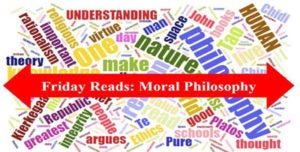 “One swallow does not make a summer; neither does one day. Similarly neither can one day, or a brief space of time, make a man blessed and happy” – Aristotle
“One swallow does not make a summer; neither does one day. Similarly neither can one day, or a brief space of time, make a man blessed and happy” – Aristotle
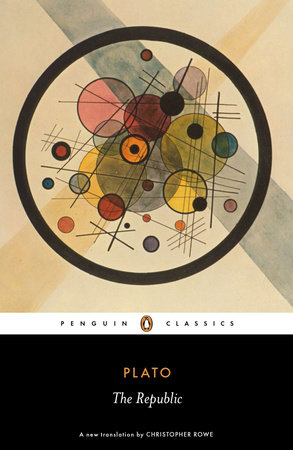 THE REPUBLIC by Plato
The Republic is Plato’s masterwork. It was written 2,400 years ago and remains one of the most widely read books in the world, famous for both the richness of its ideas and the virtuosity of its writing. Presented as a dialogue between Plato’s teacher Socrates and various interlocutors, it is an exhortation to study philosophy, inviting its readers to reflect on the choices we must make if we are to live the best life available to us.
THE REPUBLIC by Plato
The Republic is Plato’s masterwork. It was written 2,400 years ago and remains one of the most widely read books in the world, famous for both the richness of its ideas and the virtuosity of its writing. Presented as a dialogue between Plato’s teacher Socrates and various interlocutors, it is an exhortation to study philosophy, inviting its readers to reflect on the choices we must make if we are to live the best life available to us.
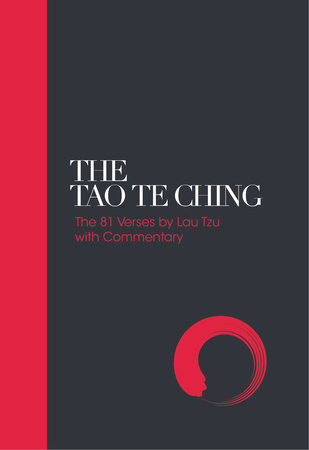 THE TAO TE CHING by Lao Tzu
Tao Te Ching translates very roughly as “the way of integrity”. In its 81 verses it delivers a treatise on how to live in the world with goodness and integrity: an important kind of wisdom in a world where many people believe such a thing to be impossible. Taosim affirms that each human being is a reflection of the whole universe, a microcosm within the macrocosm, and that all of us live under the same cosmic laws of the Tao.
THE TAO TE CHING by Lao Tzu
Tao Te Ching translates very roughly as “the way of integrity”. In its 81 verses it delivers a treatise on how to live in the world with goodness and integrity: an important kind of wisdom in a world where many people believe such a thing to be impossible. Taosim affirms that each human being is a reflection of the whole universe, a microcosm within the macrocosm, and that all of us live under the same cosmic laws of the Tao.
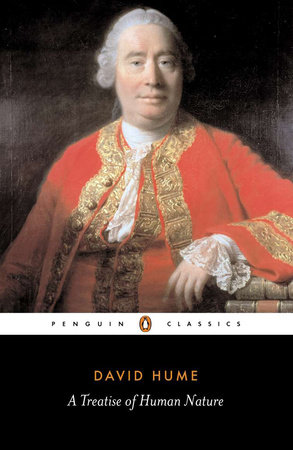 A TREATISE OF HUMAN NATURE by David Hume
With masterly eloquence, Hume denies the immortality of the soul and the reality of space; considers the manner in which we form concepts of identity, cause and effect; and speculates upon the nature of freedom, virtue and emotion. Opposed both to metaphysics and to rationalism, Hume’s philosophy of informed scepticism sees man not as a religious creation, nor as a machine, but as a creature dominated by sentiment, passion and appetite.
A TREATISE OF HUMAN NATURE by David Hume
With masterly eloquence, Hume denies the immortality of the soul and the reality of space; considers the manner in which we form concepts of identity, cause and effect; and speculates upon the nature of freedom, virtue and emotion. Opposed both to metaphysics and to rationalism, Hume’s philosophy of informed scepticism sees man not as a religious creation, nor as a machine, but as a creature dominated by sentiment, passion and appetite.
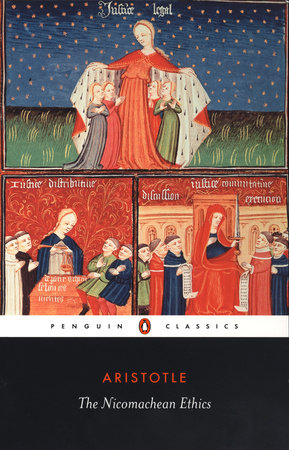 THE NICOMACHEAN ETHICS by Aristotle
The Ethics discusses the nature of practical reasoning, the value and the objects of pleasure, the different forms of friendship, and the relationship between individual virtue, society and the State.
THE NICOMACHEAN ETHICS by Aristotle
The Ethics discusses the nature of practical reasoning, the value and the objects of pleasure, the different forms of friendship, and the relationship between individual virtue, society and the State.
 FEAR AND TREMBLING by Soren Kierkegaard
Regarded as the father of Existentialism, Kierkegaard transformed philosophy with his conviction that we must all create our own nature; in this great work of religious anxiety, he argues that a true understanding of God can only be attained by making a personal “leap of faith.”
FEAR AND TREMBLING by Soren Kierkegaard
Regarded as the father of Existentialism, Kierkegaard transformed philosophy with his conviction that we must all create our own nature; in this great work of religious anxiety, he argues that a true understanding of God can only be attained by making a personal “leap of faith.”
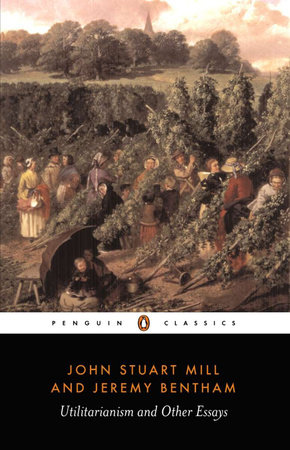 UTILITARIANISM AND OTHER ESSAYS by John Stuart Mill and Jeremy Bentham
One of the most important nineteenth-century schools of thought, Utilitarianism propounds the view that the value or rightness of an action rests in how well it promotes the welfare of those affected by it, aiming for ‘the greatest happiness of the greatest number’.
UTILITARIANISM AND OTHER ESSAYS by John Stuart Mill and Jeremy Bentham
One of the most important nineteenth-century schools of thought, Utilitarianism propounds the view that the value or rightness of an action rests in how well it promotes the welfare of those affected by it, aiming for ‘the greatest happiness of the greatest number’.
 NO EXIT AND THREE OTHER PLAYS by Jean-Paul Sartre
An existential portrayal of Hell in Sartre’s best-known play, as well as three other brilliant, thought-provoking works: the reworking of the Electra-Orestes story, the conflict of a young intellectual torn between theory and conflict, and an arresting attack on American racism.
NO EXIT AND THREE OTHER PLAYS by Jean-Paul Sartre
An existential portrayal of Hell in Sartre’s best-known play, as well as three other brilliant, thought-provoking works: the reworking of the Electra-Orestes story, the conflict of a young intellectual torn between theory and conflict, and an arresting attack on American racism.
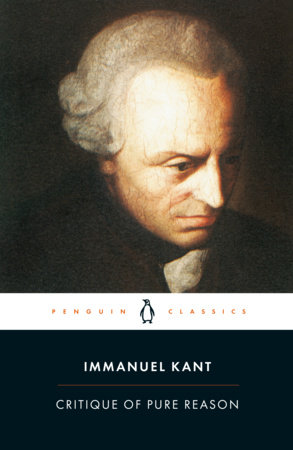 CRITIQUE OF PURE REASON by Immanuel Kant
A seminal text of modern philosophy, Immanuel Kant’s Critique of Pure Reason (1781) made history by bringing together two opposing schools of thought: rationalism, which grounds all our knowledge in reason, and empiricism, which traces all our knowledge to experience
CRITIQUE OF PURE REASON by Immanuel Kant
A seminal text of modern philosophy, Immanuel Kant’s Critique of Pure Reason (1781) made history by bringing together two opposing schools of thought: rationalism, which grounds all our knowledge in reason, and empiricism, which traces all our knowledge to experience
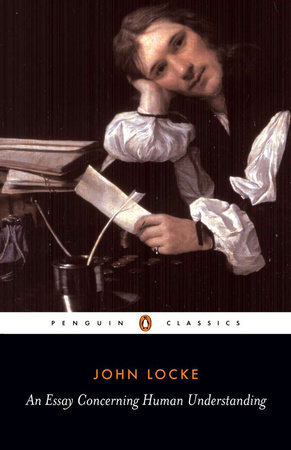 AN ESSAY CONCERNING HUMAN UNDERSTANDING by John Locke
Rejecting the theory that some knowledge is innate in us, Locke argues that it derives from sense perceptions and experience, as analysed and developed by reason.
Need more moral philosophy titles? Check out our edelweiss collection: Philosophy!
There’s a Book for That! is brought to you by Penguin Random House’s Sales department. Please follow our Tumblr by clicking here—and share this link with your accounts: theresabookforthat.tumblr.com. Thank you!
Did you see something on the news or read about something on your commute? Perhaps you noticed something trending on Twitter? Did you think: “There’s a book for that!”? Then please, send it our way at theresabookforthat@penguinrandomhouse.com
AN ESSAY CONCERNING HUMAN UNDERSTANDING by John Locke
Rejecting the theory that some knowledge is innate in us, Locke argues that it derives from sense perceptions and experience, as analysed and developed by reason.
Need more moral philosophy titles? Check out our edelweiss collection: Philosophy!
There’s a Book for That! is brought to you by Penguin Random House’s Sales department. Please follow our Tumblr by clicking here—and share this link with your accounts: theresabookforthat.tumblr.com. Thank you!
Did you see something on the news or read about something on your commute? Perhaps you noticed something trending on Twitter? Did you think: “There’s a book for that!”? Then please, send it our way at theresabookforthat@penguinrandomhouse.com
Popular Company News
PRH Acquires Wonderbly, One of the UK’s Fastest-Growing Independent Publishers and Leader in Personalized Gift Books
June 4, 2025
Acquisition Underscores Penguin Random House’s Commitment to Innovation and Growth Penguin Random House, a leading global trade book publisher, has acquired Wonderbly, one of the UK’s…
Former First Lady Michelle Obama to Publish THE LOOK With Crown Publishing Group
June 5, 2025
The Crown Publishing Group today announced THE LOOK, a new book from Michelle Obama, former First Lady of the United States, to be published November 4, 2025.…
Matthew McConaughey, Academy Award-Winning Actor and Author of GREENLIGHTS, to Publish New Book With Crown
June 26, 2025
Crown, an imprint of the Crown Publishing Group, announced the September 16 publication of POEMS & PRAYERS by Matthew McConaughey, an eternal optimist, Academy Award–winning actor,…
Legendary Thriller Author Frederick Forsyth Passes Away at 86
June 10, 2025
Frederick Forsyth, bestselling author, British RAF pilot, and journalist died on Monday, June 9, 2025. He wrote eighteen espionage thrillers including THE DAY OF THE JACKAL, THE…
Penguin Young Readers to Publish Debut Picture Book by Jalen Hurts, Philadelphia Eagles Quarterback and Super Bowl MVP
June 24, 2025
Jalen Hurts, Philadelphia Eagles quarterback and 2025 Super Bowl MVP, will publish his debut children’s picture book with Flamingo Books, an imprint of Penguin Young Readers…
PYR to Publish New Book for Tweens Inspired by the #1 NYT Bestseller, THE ANXIOUS GENERATION
May 21, 2025
Rocky Pond Books, an imprint of Penguin Young Readers, will publish a companion to social psychologist Jonathan Haidt’s #1 New York Times bestselling and culturally transformative…
Penguin Press and Penguin Random House Social Impact Team Partner to Donate THE JAILHOUSE LAWYER to Incarcerated Individuals
June 25, 2025
On July 8, Penguin Press will publish THE JAILHOUSE LAWYER by Calvin Duncan and Sophie Cull. This title is a searing and ultimately hopeful account of…
Tiny Reparations Books Celebrates Their 5th Anniversary and Publication of Tourmaline’s MARSHA
June 4, 2025
On May 22, Tiny Reparations Books celebrated two momentous occasions: the 5th anniversary of the imprint and the launch of the National bestseller MARSHA, Tourmaline’s highly anticipated biography…
Companhia das Letras Recognized in Folha De S. Paulo’s Best Brazilian Books of the 21st Century
June 9, 2025
Folha de S. Paulo, a renowned Brazilian daily newspaper founded in 1921, recently released an issue celebrating the most noteworthy Brazilian literature of the 21st century. …
